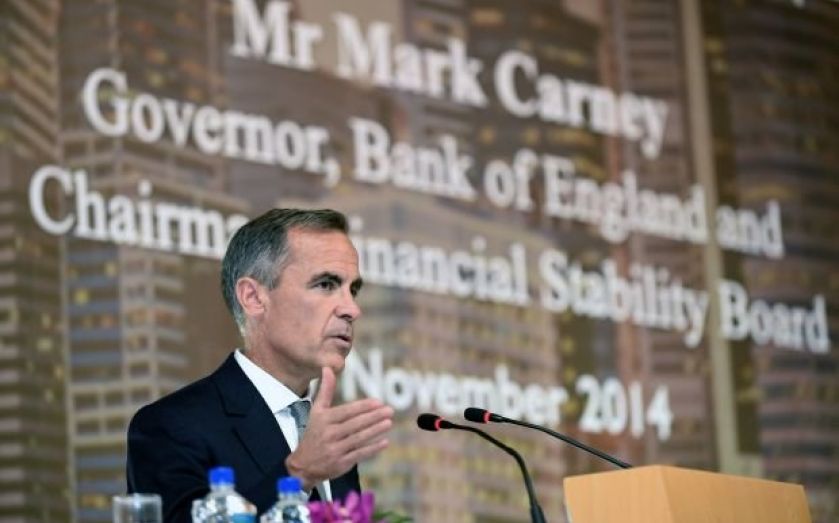Mark Carney: EU bonus cap has “unfortunate” side-effects – reform bankers’ pay instead

Bank of England governor Mark Carney says massive fines for bad behaviour among bankers hasn't done enough – and that their pay may be overhauled even further in order to "help rebuild trust in financial institutions".
New measures could include "clawback" options for bankers' salaries as well as their bonuses, and even paying out "performance bonds", rather than cash, as an incentive.
Delivering the 2014 Monetary Authority of Singapore lecture overnight, Carney said the EU bonus cap, which fixes bankers' bonuses at 100 per cent of their salaries – or 200 per cent, if their board votes in favour of it – will have "the undesirable side-effect of limiting the scope for remuneration to be cut back".
This makes the case for additional reforms to ensure that the burden of excessive risk-taking and misconduct by staff can still be borne by those staff. Standards may be need to be developed to put non-bonuses or fixed pay at risk. This could potentially be achieved through payment in instruments other than cash,
In other words, regulators should look at other ways to punish bankers for bad behaviour, such as putting "non-bonus or fixed pay at risk".
Many of those working in finance in the UK are already subject to bonus deferrals for up to three years, while in some cases the clawback options extend for as many as seven years beyond that.
But Carney said sanctions must go further.
Leaders and senior managers must be personally responsible for setting the cultural norms of their institutions.
Earlier today, four former members of the parliamentary commission on banking standards, issued a joint statement demanding the implementation of recommendations put forward in its report into banking structure and bankers' pay. The wrote that as time passes, "the pressure for reform will weaken".
The fact that, several years after the Libor scandal broke, the forex market may have been similarly exposed to rigging is extrememely concerning.